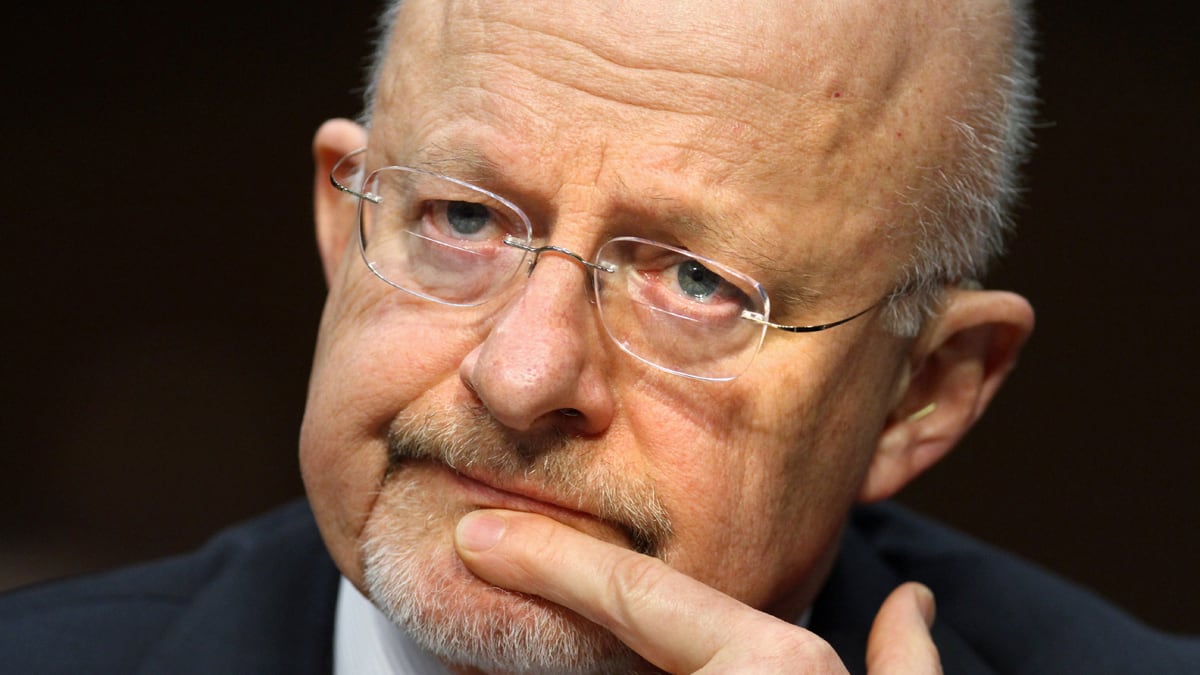The day before the Justice Department announced a new criminal investigation into national security leaks, the intelligence community issued tougher guidelines of its own for protecting classified secrets.
On June 7, James Clapper, the Director of National Intelligence, who oversees 16 agencies, including the CIA, FBI and NSA, signed the “Intelligence Community Directive 700.”
What’s significant about the four-page document is that it urges counter-intelligence officers—the highly-skilled guys normally in charge of finding enemy moles—to collaborate on leak investigations, an area traditionally outside the purview of spy-catchers. Leaks have been handled by the security division, people at the CIA who are lower on the totem pole and do things like administer lie-detector tests and conduct background investigations on new employees. Investigations rarely resulted in prosecutions, in part because the FBI is reluctant to subpoena reporters. The switch reflects a renewed focus on getting to the bottom of how leaks happen—and, in theory, how they can be prevented.
“The counter-intelligence aspect of the directive is as much about prevention and deterrence as it is about investigations,” said Michael Birmingham, a spokesman for the DNI. “Counter-intelligence will look at what were the procedures in place to protect the information? What may not have been adhered to? What did we miss?”
The directive also says that all people with access to classified information--a figure that is more than 1 million, including contractors--should be “continually evaluated and monitored.” In recent years new technology has come on line that can better track suspicious activity by users of classified material.
The new guidelines have been in the works for a while and are not a response to the recent spate of national security leaks, says Birmingham. They are aimed at stopping what intelligence professionals call the “insider threat,” which includes both leakers to the media and moles working for a foreign intelligence service. In practice, however, it’s unclear whether or when anything will change. While the director of national intelligence is nominally in charge of the budget and direction of the entire U.S. intelligence community, his power has been challenged successfully by the military and CIA since the office was created in 2005. The directive issued this month is more of a strong recommendation than an enforceable rule.

Republicans have accused the White House of orchestrating recent leaks—about cyber attacks on Iran’s enrichment facilities, drone strikes, and a plot by Al Qaeda in Yemen—in an effort to burnish President Obama’s image as a tough commander in chief during an election year. The GOP leaders have called for a special prosecutor to investigate the leaks, a position Democrats championed to investigate the Reagan administration’s operation that funneled the profits of arms sales to Iran to anti-communist rebels in Nicaragua.
Democrats so far have stood by the Justice Department, which this month appointed two U.S. attorneys to launch a criminal probe into the leaks. A DOJ spokesman declined to comment on whether disclosures from Newsweek reporter Danny Klaidman’s new book, “Kill or Capture,” were part of the new investigation.
The new intelligence guidelines mean leaks will be “addressed with the same intensity as penetrations by foreign intelligence services,” says Steven Aftergood, an advocate against secrecy in government who works for the Federation of American Scientists, and who posted the directive on his blog this week. “In other words, the utmost severity by the intelligence community’s most capable investigators, the counter-intelligence guys.”
In contrast, says Aftergood, “security has traditionally been a backwater that hires former military personnel and muscle men.”
Birmingham said the basis for deciding which leaks get investigated hasn’t changed—it still depends on how sensitive the information was that was leaked. “We are concerned across the board regardless of the motivation of how information gets out,” he said. “But the priority of the investigation is still determined by the sensitivity of the information disclosed.”





